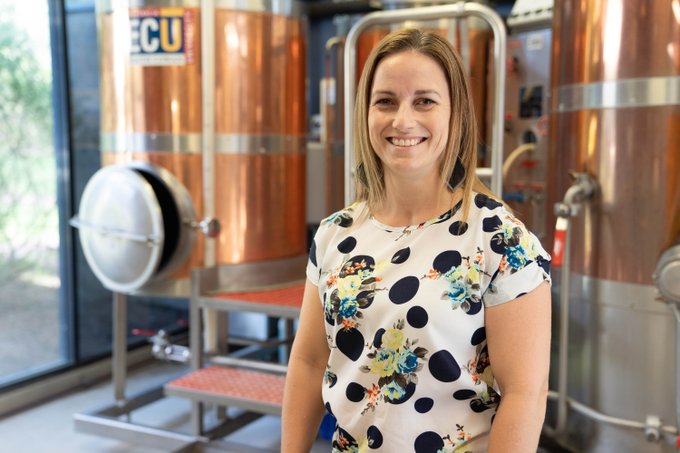
Researcher wins for breakthrough in gluten-free barley
Research into the development of a gluten-free barley that can be used in brewing has been recognised with a prestigous national award.

Professor Michelle Colgrave leads the Food and Agricultural Proteomics teams at Edith Cowan University
Professor Michelle Colgrave was recognised by the Australian Academy of Technology and Engineering’s Innovation and Excellence Awards for her research has supported the development of an ultra-low-gluten barley, now known as Kebari which is used in the production of gluten-free beers.
The barley can also be used for cereals and food products with all the nutritional benefits of whole grains, and are also safe to be enjoyed by coeliac sufferers.
Professor Colgrave told the Brews News BreweryPro podcast that the unique grain was developed using cross-breeding.
The definitions around gluten-free and gluten-reduced can be confusing, especially as Australia has a different definition to the United States and Europe. We spoke with Professor Colgrave for a comprehensive primer of gluten and gluten terminology in brewing on this BreweryPro podcast.
She said that gluten-free beers were normally made from grains such as millet, sorghum, oats and quinoa.
“I was really fortunate to work with a group of scientists at CSIRO who took a different approach to this and said, ‘Okay could we actually remove the gluten from the [barley] grain itself?’,”she explained.
“What they did was they looked around the world to see what varieties existed and then they worked on barley.
“This is not genetically modified, this is not gene-edited or any of these other techniques, it’s just a selective breeding program. Taking one grain and crossing it with another.
“And so we were able to produce this barley, and it is gluten free according to the US and European standards, but not by the Australian standards because it contains barley.”
Professor Colgrave said brewing was a consideration in the development of Kebari.
“That’s something that I do get to test a little. My research groups actually don’t mind this part of the job because we do open many beers in the lab.”
“One of the initial challenges in the first crosses is once we removed these proteins, and we’re removing up to 50 per cent of the grain protein, was that the grain itself was smaller and it had this shrunken, sort of like a hollow, so instead of a smooth plump grain it was actually hollowed out, and that meant that it initially created some problems with filtration,” she said.
“Through a series of additional breeding lines, they managed to increase the grain size back up to a point where it didn’t create those problems anymore.
“That was seen as an early industry issue and they managed to fix it over the coming crosses.”
Canberra-based BentSpoke Brewing is one Australian brewery to experiment with Kebari, though found the ability to label the beers ‘gluten-free’ in Australia problematic.
BentSpoke director Richard Watkins said having trialled several beer styles, the nutty, earthy characters of the Kebari malt work best with saisons, Belgian-style wits and hop-driven pale ales, with the latter used in the brewpub.
“We did a few batches through the brewpub and that’s been well received,” he said.
“There’s certainly a market out there for gluten-free beer.”
But he said he hadn’t continued because as a barley-derived grain, BentSpoke cannot label the beer made with Kebari gluten-free in Australia.
“We didn’t have a clear communication path to the consumer,” he explained.
“It’s not good really, I mean we make a gluten-free product that would be called gluten free anywhere else in the world,” Watkins said.
“But in Australia, because we have a rule that says that if it’s made from barley it can’t be called gluten free, even though the barley is gluten free, I think the food standards in Australia need to move with the times.”
Professor Colgrave said food standards were always under review.
“There has been some review of what the gluten free standard should look like in Australia, and that review’s ongoing,” she said.
“We may see that that is changed in time to come in line with what we see overseas. In the meantime, I guess, it’s still possible to use this grain in brewing, it’s just a matter of how you market it.”
Professor Michelle Colgrave is an internationally-recognised researcher in the field. She leads the Food and Agricultural Proteomics teams at Edith Cowan University and CSIRO, using technology to identify key proteins that will benefit Australia’s food and agriculture industries and improve human health.



